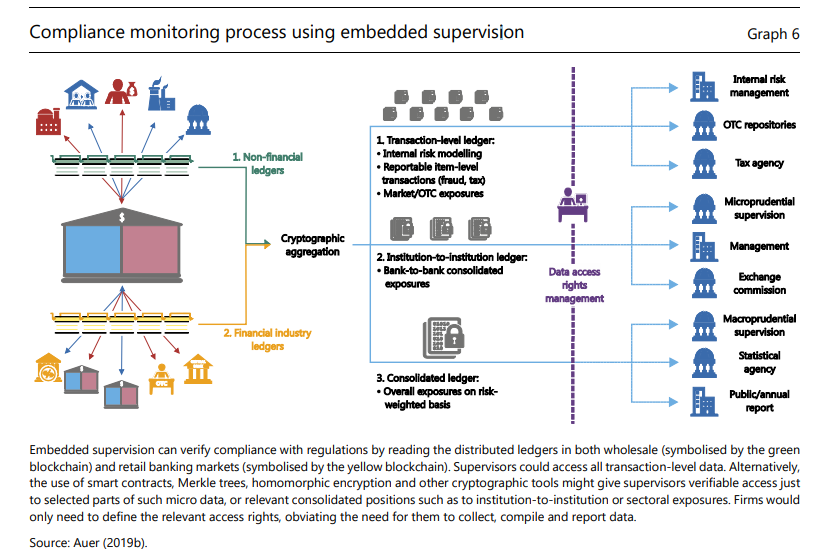A new report published by the Bank of International Settlements (BIS) has suggested the creation of an “embedded supervision” capacity within stablecoin frameworks for the benefit of regulators.
The paper, published on Nov 24, cites the potential of Facebook’s Libra stablecoin to become a de-facto global currency. This, they say, is evidence that regulators must accept the inevitability of stablecoin adoption and find new ways to carry out their functions.
Resistance Is Futile
Written by Douglas Arner, Raphael Auer, and Jon Frost, the paper seeks effective oversight of private stablecoins, which are currently unregulated.
It mentions that no stablecoin or cryptocurrency has emerged as a viable competitor to fiat currency yet. It does, however, say that Facebook’s Libra stablecoin may, one day, existentially threaten sovereign fiat money.
An excerpt from the report reads:
“Libra does still threaten currency substitution, i.e. clients may use Libra as an alternative to the sovereign currency in a given jurisdiction, particularly those outside of major currency areas with established Libra stablecoins.”
Embedded Monitoring for Regulatory Compliance
One way around this existing problem, the BIS says, is to create an embedded capability within existing stablecoin frameworks to ensure market integrity, investor and consumer protection, or prudential supervision.
An explanation from the report reads:
“While many DLT companies have not necessarily focused on this joining of technology, regulation and supervision, it is being seen in some contexts. The automated provision of information by certain large value digital payments platforms, such as Alipay and WeChat Pay in China, provides one example.”

The paper goes on to suggest that Central Bank Digital Currencies (CBDCs) may potentially solve the oversight problem more elegantly because their issuing central banks are not “subject to the same conflicts of interest around the asset backing and stabilization mechanism.”
 beincrypto.com
beincrypto.com